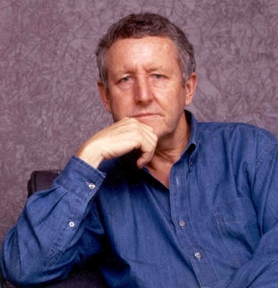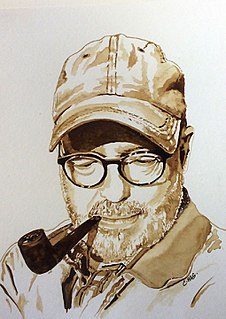A Quote by Deepak Chopra
How do we awaken to this true Self? By going within and putting our attention on the silent presence in our heart - the silent witness that is detached from sensory experience and at the same time enjoys that experience in complete freedom.
Related Quotes
We have to learn to go beyond both a positive mind and a negative mind to become a silent, nonjudgmental, non-analytical, non-interpretiv e mind. In other words, the silent witness. In the process of silent witnessing, we experience inner silence. In the purity of silence, we feel connected to our source and to everything else.
In fact we do not try to picture the afterlife, nor is it our selves in our nervous tics and optical flecks that we wish to perpetuate; it is the self as the window on the world that we can't bear to thinkof shutting. My mind when I was a boy of ten or eleven sent up its silent scream at the thought of future aeons -- at the thought of the cosmic party going on without me. The yearning for an afterlife is the opposite of selfish: it is love and praise of the world that we are privileged, in this complex interval of light, to witness and experience.
Living an awakened life [...] is just a matter of where our attention is being placed. It is possible for our human-beingness and our true nature or presence to exist wonderfully well together, enriching each other through their closeness. It is through the power of our attention that we experience one or the other or both.
That reality is 'independent' means that there is something in every experience that escapes our arbitrary control. If it be a sensible experience it coerces our attention; if a sequence, we cannot invert it; if we compare two terms we can come to only one result. There is a push, an urgency, within our very experience, against which we are on the whole powerless, and which drives us in a direction that is the destiny of our belief.
We've always had this experience that things take long, but I'm 100% convinced that our principles will in the end prevail. No one knew how the Cold War would end at the time, but it did end. This is within our living experience... I'm surprised at how fainthearted we sometimes are and how quickly we lose courage.
Why is it we want so badly to memorialize ourselves? Even while we're still alive. We wish to assert our existence, like dogs peeing on fire hydrants. We put on display our framed photographs, our parchment diplomas, our silver-plated cups; we monogram our linen, we carve our names on trees, we scrawl them on washroom walls. It's all the same impulse. What do we hope from it? Applause, envy, respect? Or simply attention, of any kind we can get? At the very least we want a witness. We can't stand the idea of our own voices falling silent finally, like a radio running down.
When you meditate, what you actually do is to enter into a calm or still, silent mind. We have to be fully aware of the arrival and attack of thoughts. That is to say, we shall not allow any thought, divine or undivine, good or bad, to enter into our mind. Our mind should be absolutely silent. Then we have to go deep within; there we have to observe our real existence.
When we really want to hear, and be heard by, someone we love, we do not go rushing into noisy crowds. Silence is a form of intimacy. That's how we experience it with our friends and lovers. As relationships grow deeper and more intimate, we spend more and more quiet time alone with our lover. We talk in low tones about the things that matter... That is why Christ comes to us when our hearts and minds are still and silent.
































